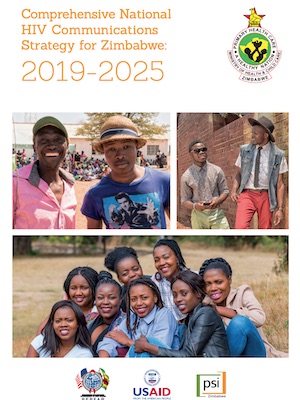Communications
Engagement
Recognising the critical role of CSOs in health service delivery and health policy formulation and implementation, there is a need for a more organised and structured process for CSOs to engage in addressing public health challenges and to adapt to the highly dynamic health sector.
The CSO Engagement and Accountability Framework outlines the approach and modalities for effective engagement and collaborative partnership engagement between Civil Society Organisations (CSOs) and other stakeholders. Effective engagement and collaborative partnerships will maximise the impact of health policies and programmes while enhancing aid effectiveness in the health sector in Zimbabwe.
CSO Communications;
HIV and Health CSOs require different communications capacities. These include; at a community level informing groups who are at risk of HIV / AIDS and how to prevent the illness; at a national level advocating to decision makers for the formulation of policies to enact and/or enforce legislation to prevent discrimination against key populations; and/or the CSOs telling the story of their work to share lessons and raise awareness of their work.
HIV and Health CSOs can be involved in three different types of communication;
- Behaviour change communications – for example targeting key populations with specific messages intended to influence them to adopt behaviour and attitudes that will contribute to better health.
- Advocacy to influence decision makers to bring about change in policies, laws and practices. HIV and Health CSO advocacy work often raises awareness of the need for change by reaching out to the people who can contribute to making change happen.
- Organizational communications is a process involving; of who says what; through what channels; to whom; and with what impact. Health and HIV CSOs are involved in messaging, building awareness and raising the visibility of an organization. This can be carried out through printed materials, media relations, Internet-based media, publications, etc. ZAN’s communication strategy is guided by the Comprehensive National HIV Communications Strategy for Zimbabwe: 2019-2025. This is the guiding framework for implementing integrated HIV communications interventions and activities in communities. It recognises the importance of a holistic approach to the integration of communications approaches and linkages between HIV; prevention, care and treatment programmes; connecting communities to HIV and health interventions. Despite progress made towards achieving the 90-90-90 targets, there is no overarching framework guiding comprehensive HIV social and behaviour change communications activities. Stakeholders recommended the development of a Comprehensive National HIV Communications Strategy, aligned with the Zimbabwe National AIDS Strategic Plan, and focused on supporting the achievement of its vision of ending AIDS by 2030.
Resources
-
 Comprehensive National HIV Communications Strategy for Zimbabwe: 2019-2025 The strategy puts the client at the centre of all efforts to show how programmes, often overlap, requiring communications to be client-centred rather than programme-centred.PDF 33.7 MB
Comprehensive National HIV Communications Strategy for Zimbabwe: 2019-2025 The strategy puts the client at the centre of all efforts to show how programmes, often overlap, requiring communications to be client-centred rather than programme-centred.PDF 33.7 MB






